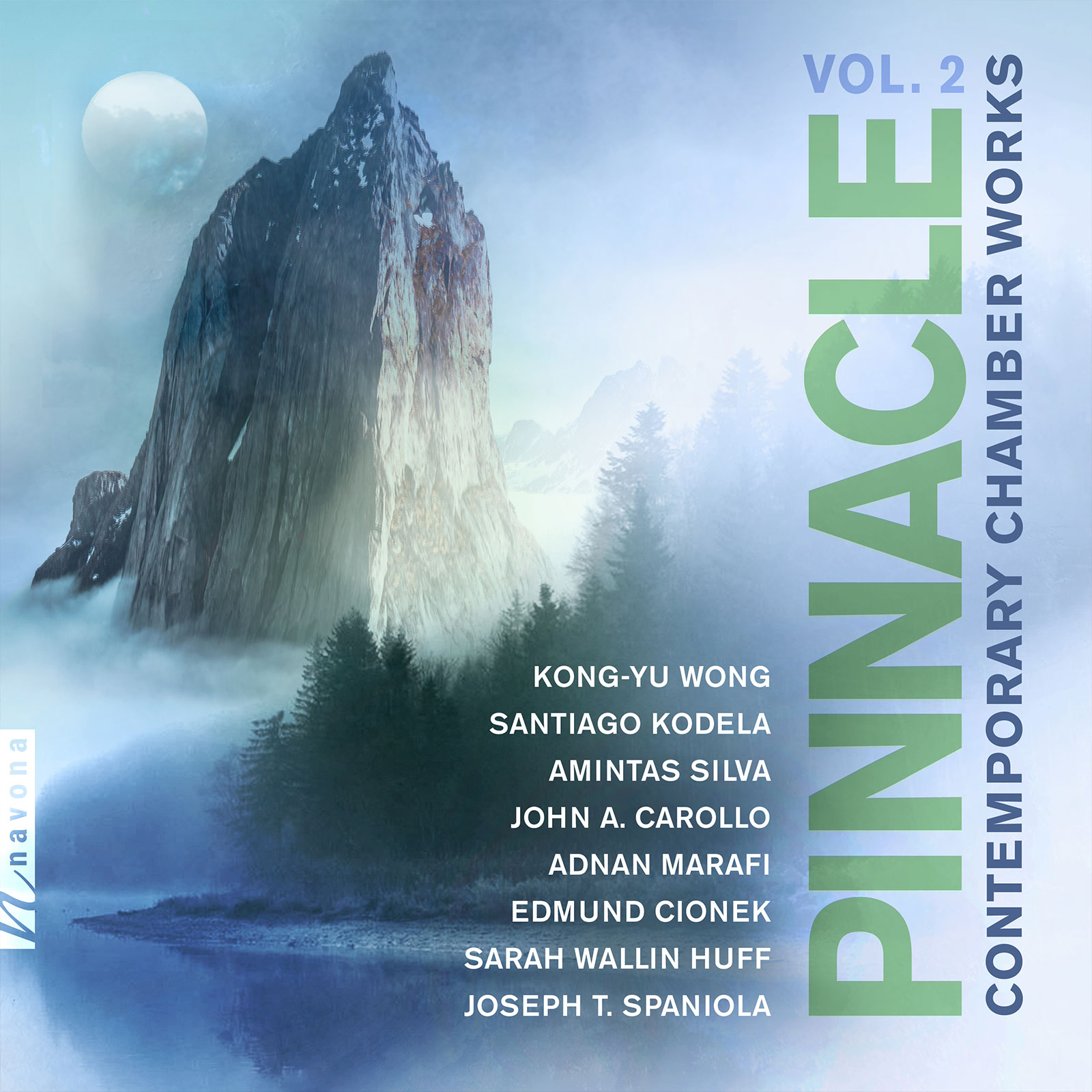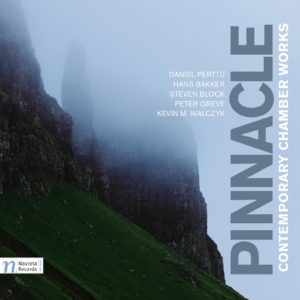Pinnacle Vol. 2
Kong-Yu Wong composer
Santiago Kodela composer
Amintas Silva composer
John A. Carollo composer
Adnan Marafi composer
Edmund Cionek composer
Sarah Wallin Huff composer
Joseph T. Spaniola composer
Navona Records presents PINNACLE VOL. 2, a collection of contemporary chamber works by composers John A. Carollo, Edmund Cionek, Sarah Wallin Huff, Santiago Kodela, Adnan Marafi, Amintas Silva, Joseph T. Spaniola, and Kong-Yu Wong, that highlight the melodic, emotive, and dramatic styles offered by today’s chamber music. Throughout the album, the composers explore the cyclicity of life and nature. Simple melodies rise to complexity to represent a father’s inspiration, classical and pop sounds blend to illustrate the boundary between land and sea, rondos conjure the ebb and flow of flooding, and musical idioms combine to bring cultural tradition and modernity together as one.
Listen
Stream/Buy
Choose your platform
Track Listing & Credits
| # | Title | Composer | Performer | |
|---|---|---|---|---|
| 01 | A Moon of my Own | Kong-Yu Wong | Gabriela Diaz, violin; Yoko Hagino, piano | 7:13 |
| 02 | String Quartet “Euphoria” | Santiago Kodela | Benda Quartet | Jakub Černohorský, violin; Petr Gabovský, violin; Petr Benda, viola; Tomáš Svozil, cello | 4:47 |
| 03 | Symphony Estrangeiro, Feito De Ferro, Revestido De Nobreza: I. Sonho (Dream) | Amintas Angel Cardoso Santos Silva | Benda Quartet | Jakub Černohorský, violin; Petr Gabovský, violin; Petr Benda, viola; Tomáš Svozil, cello | 2:38 |
| 04 | Symphony Estrangeiro, Feito De Ferro, Revestido De Nobreza: II. MOR | Amintas Angel Cardoso Santos Silva | Benda Quartet | Jakub Černohorský, violin; Petr Gabovský, violin; Petr Benda, viola; Tomáš Svozil, cello | 4:58 |
| 05 | Piano Etude No. 2 “Sightless” | John A. Carollo | Lucie Kaucká, piano | 2:45 |
| 06 | String Quartet No. 1: Nile: III. Rondo Allegro “Akhet” | Adnan Marafi | Benda Quartet | Jakub Černohorský, violin; Petr Gabovský, violin; Petr Benda, viola; Tomáš Svozil, cello | 8:03 |
| 07 | Stolen Moments In Green And Blue: I. Green | Edmund Cionek | Gabriela Diaz, violin; Yoko Hagino, piano | 4:55 |
| 08 | Stolen Moments In Green And Blue: II. Blue | Edmund Cionek | Gabriela Diaz, violin; Yoko Hagino, piano | 4:57 |
| 09 | Dodecafunky | Sarah Wallin Huff | Sarah Brady, flute; Yoko Hagino, piano | 5:04 |
| 10 | Armenian Stirrings: I. Blue Moon | Joseph T. Spaniola | Rane Moore, clarinet; Yoko Hagino, piano | 4:11 |
| 11 | Armenian Stirrings: II. Alexandria Oror | Joseph T. Spaniola | Rane Moore, clarinet; Yoko Hagino, piano | 4:28 |
| 12 | Armenian Stirrings: III. Through the Darkness, a Light | Joseph T. Spaniola | Rane Moore, clarinet; Yoko Hagino, piano | 5:27 |
A MOON OF MY OWN
STOLEN MOMENTS IN GREEN AND BLUE
ARMENIAN STIRRINGS
Recorded April 11-13, 2021 at the Shalin Liu Performance Center in Rockport MA
Session Producer, Editing & Mixing Brad Michel
Session Engineer Tom Stephenson
STRING QUARTET “EUPHORIA”
Recorded October 30, 2020 at Dům Kultury města Ostravy (The Ostrava House of Culture) in Ostrava, Czech Republic
Session Producer, Editing & Mixing Jan Košulič
Session Engineer Pavel Kunčar
Assistant Engineer Jakub Stratílek
PIANO ETUDE NO. 2 “SIGHTLESS”
Recorded November 16, 2020 at Reduta Hall in Olomouc, Czech Republic
Session Producer Vít Mužík
Session Engineer, Editing & Mixing Jan Košulič
STRING QUARTET NO. 1: NILE
Recorded March 2, 2021 at Dům Kultury města Ostravy (The Ostrava House of Culture) in Ostrava, Czech Republic
Session Producer Jan Košulič
Session Engineer Aleš Dvořák
Editing Jacob Steingart
Addtl. Editing, Mixing Lucas Paquette
DODECAFUNKY
Recorded September 29, 2020 at Futura Productions in Roslindale MA
Session Producer, Editing & Mixing Brad Michel
Session Engineer John Weston
Assistant Engineer Jacob Steingart
SYMPHONY ESTRANGEIRO, FEITO DE FERRO, REVESTIDO DE NOBREZA
Recorded December 7, 2020 at Dům Kultury města Ostravy (The Ostrava House of Culture) in Ostrava, Czech Republic
Session Producer, Editing & Mixing Jan Košulič
Session Engineer Jana Jelínková
Assistant Engineer Mikhail Pavlov
General Manager of Audio & Sessions Jan Košulič
Recording Sessions Director Levi Brown
Audio Director Lucas Paquette
Mastering Shaun Michaud
Production Assistant Martina Watzková
Executive Producer Bob Lord
Executive A&R Sam Renshaw
A&R Director Brandon MacNeil
A&R Danielle Lewis, Chris Robinson, Jacob Smith
VP, Design & Marketing Brett Picknell
Art Director Ryan Harrison
Design Edward A. Fleming
Publicity Patrick Niland, Sara Warner
Artist Information
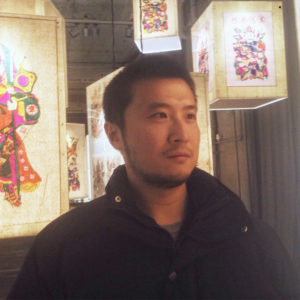
Kong-Yu Wong
Kong-Yu Wong was born in Canton and he then became a HongKonger. He studies music at different institutes in China and Hong Kong, and was awarded a PhD from the University of York in England. Principal mentors of his include composers Gao Weijie and Nicola LeFanu. Wong’s recent works include a number of vocal compositions in varied forces and different languages. His piano music for young people is especially welcomed by pianists and audiences alike.
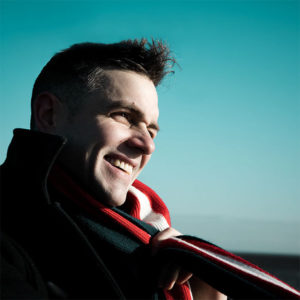
Santiago Kodela
Santiago Kodela is an award-winning Classical Guitarist & Composer working in the areas of concert, solo instrument, chamber, and choral music. His works explore various aspects of sound and harmony, adventuring intensely into the areas of iso-rhythms, metric modulation, and chord harmonization. In 2022 the album PINNACLE VOL. 2 was awarded the 2nd Prize Silver Medal by North-American Global Music Awards in the classical category. Furthermore, his piece Delicate Soliloquies was shortlisted as a finalist in the 2nd Composition Competition by the Dutch Guitar Foundation by a jury integrated by Steve Goss, JacobTV, and Nikita Koshkin.
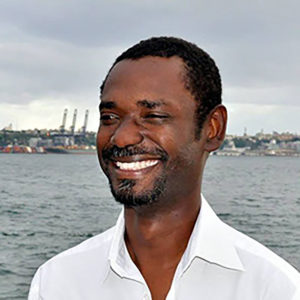
Amintas Angel Cardoso Santos Silva
Amintas Angel Cardoso Santos Silva (b. 1977) is a composer, singer, songwriter, writer and diplomat whose passion is expressing himself through art, especially music. He refers to the radio, soundtracks of old Brazilian soap operas, and of course, his mother’s singing as his first musical experiences. He also mentions his father’s old school musical taste as an initial and permanent guidance.
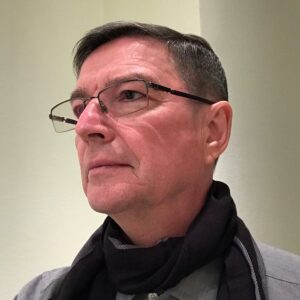
John A. Carollo
John A. Carollo was born in Torino, Italy and brought to the United States by his adoptive parents. When he was in grade school, he studied classical piano and sang in the church choir. While attending college in San Diego CA, he studied music and psychology. During this time, Carollo took piano lessons and began composing his first piano works. He graduated from San Diego State University being granted a master’s degree in clinical psychology.
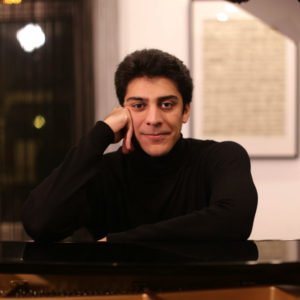
Adnan Marafi
Adnan Marafi is a Kuwaiti composer born in 1994. He graduated from the College of Basic Education in 2017 where he studied piano and violoncello. In 2019 he travelled to Tashkent and recorded his two suites: Karkadae for flute and piano, and Dune for violin and piano. In 2020 his music was performed at The Academy of Arts and Media for Youths in Kuwait, and was described as “Invigorating, rich, and a unique take on contemporary music.”

Edmund Cionek
Edmund Cionek is a New York-based composer who writes for the theatre and the concert hall. His catalogue of orchestral, chamber, and vocal music reflects a deft blend of classical design, pop elements, and humor mixed in a post-modern style. A student of William Bolcom, he earned the degree DMA in Composition from the University of Michigan. Cionek also studied in Paris with Schoenberg disciple Max Deutsch at the École Normale de Musique. He has served on the Board of Directors of the League of Composers-ISCM, the New York Art Ensemble, and currently The Bar Harbor Music Festival. Edward B. Marks, Carlin America & EDITIONS Amsterdam publish his works. He is a member of ASCAP and AFM-Local 802. He was recently appointed to the College Music Society Music Composition National Advisory Board.

Sarah Wallin Huff
Sarah Wallin Huff is a music lecturer at California Polytechnic University of Pomona, teaching “History of Technology in Music,” for which she published an original textbook with Great River Learning in 2019. She received her M.A. in Music Composition at Claremont Graduate University in 2008, and was the Professor of Composition and Advanced Theory — as well as conductor of the Chamber Ensemble — at The Master’s University in Santa Clarita from 2012-2016.

Joseph T. Spaniola
Joseph T. Spaniola is a composer on a passionate quest to engage the hearts and minds of audiences and performers through the communicative powers of music. Spaniola is active as a composer, arranger, educator, conductor, lecturer, producer, clinician, and adjudicator. He has composed works for band, orchestra, chamber ensembles, solo instruments, voice, choir, and electronic tape. His works have received honors from National Band Association, The American Prize, Global Music Awards, Florida State Music Teachers Association, Dallas Wind Symphony, and others.

Lucie Kaucká
The pianist Lucie Kaucká was born on March 31, 1978 in Kraslice near Karlovy Vary, where she began studying music at the age of seven. She continued her piano studies at the Conservatory of Teplice and the Conservatory of Pardubice with Martin Hröel. After graduation from Pardubice she concentrated on the study of musicology at the Palacky University in Olomouc and finished successfully there in 2003.
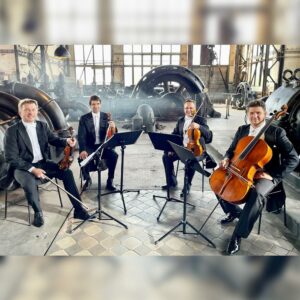
Benda Quartet
Since the Benda Quartet began performing in 2012 they have achieved a wide variety of musical successes and established themselves among highly respected Czech ensembles. Their first significant landmark was the concert debut they performed at the 60th Jubilee of the Janacek Philharmonic Orchestra in Ostrava in April 2014. The concert was recorded by Czech Radio and garnered a huge audience acclaim. Since then has the collaboration with the studio of Czech Radio continued on regular basis and resulted in a number of publicly appreciated recordings. The Benda Quartet have worked intensively together with the Janáček Philharmonic Orchestra and artist management agency Janáčkův Máj on numerous chamber music and educational projects.
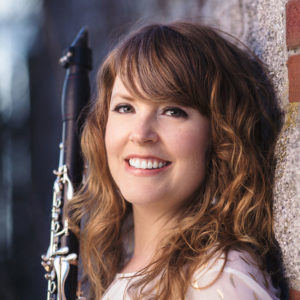
Rane Moore
Clarinetist Rane Moore is well-regarded for her thoughtful, provocative interpretations of standard and contemporary repertoire. Fiercely devoted to the new music communities of the East Coast and beyond, Moore is a founding member of the New York based Talea Ensemble which regularly gives premieres of new works at major venues and festivals around the world. Moore has recently joined the award winning wind quintet, The City of Tomorrow, and is also a member of Boston’s Callithumpian Consort and Sound Icon.
